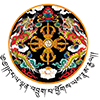FAQs
1. What are Ozone Depleting Substances?
Ozone depleting substances are chemicals that destroy the earth’s protective ozone layer. ODS includes:
● chlorofluorocarbons (CFCs)
● halons
● carbon tetrachloride (CCl 4 )
● methyl chloroform (CH 3 CCl 3 )
● hydrobromofluorocarbons (HBFCs)
● hydrochlorofluorocarbons (HCFCs)
● methyl bromide (CH 3 Br)
● bromochloromethane (CH 2 BrCl)
● chlorofluorocarbons (CFCs)
● halons
● carbon tetrachloride (CCl 4 )
● methyl chloroform (CH 3 CCl 3 )
● hydrobromofluorocarbons (HBFCs)
● hydrochlorofluorocarbons (HCFCs)
● methyl bromide (CH 3 Br)
● bromochloromethane (CH 2 BrCl)
2. Is it allowed to import ODS into Bhutan?
Import of ODS is prohibited except for hydrochlorofluorocarbons (HCFCs).
3. Can we import HCFCs directly into Bhutan?
No. Import permit from the National Ozone Unit at the National Environment Commission Secretariat is required to import HCFCs.
4. How to apply for an HCFC import permit?
Should download and fill up the import application form and submit it to NOU. The
application form is available on NEC website.
application form is available on NEC website.
5. How long does NOU take to issue import permits?
Normally an import permit for HCFC is issued within one or two days.
6. Is there any control on the import of refrigeration and air conditioning equipment in Bhutan?
Yes. Import of refrigeration and air conditioning equipment based on ozone depleting substances (ODS) are prohibited in Bhutan. In fact, any products containing ODS are prohibited in Bhutan.
7. What are Hydrofluorocarbons (HFCs)?
HFCs are chemicals developed as an alternative to ODS. Although not ODS, they are potent greenhouse gases.
8. Is HFC regulated in Bhutan?
Yes. Since Bhutan ratified the Kigali Amendment to the Montreal Protocol, importing of HFC into Bhutan requires a permit from NOU.

